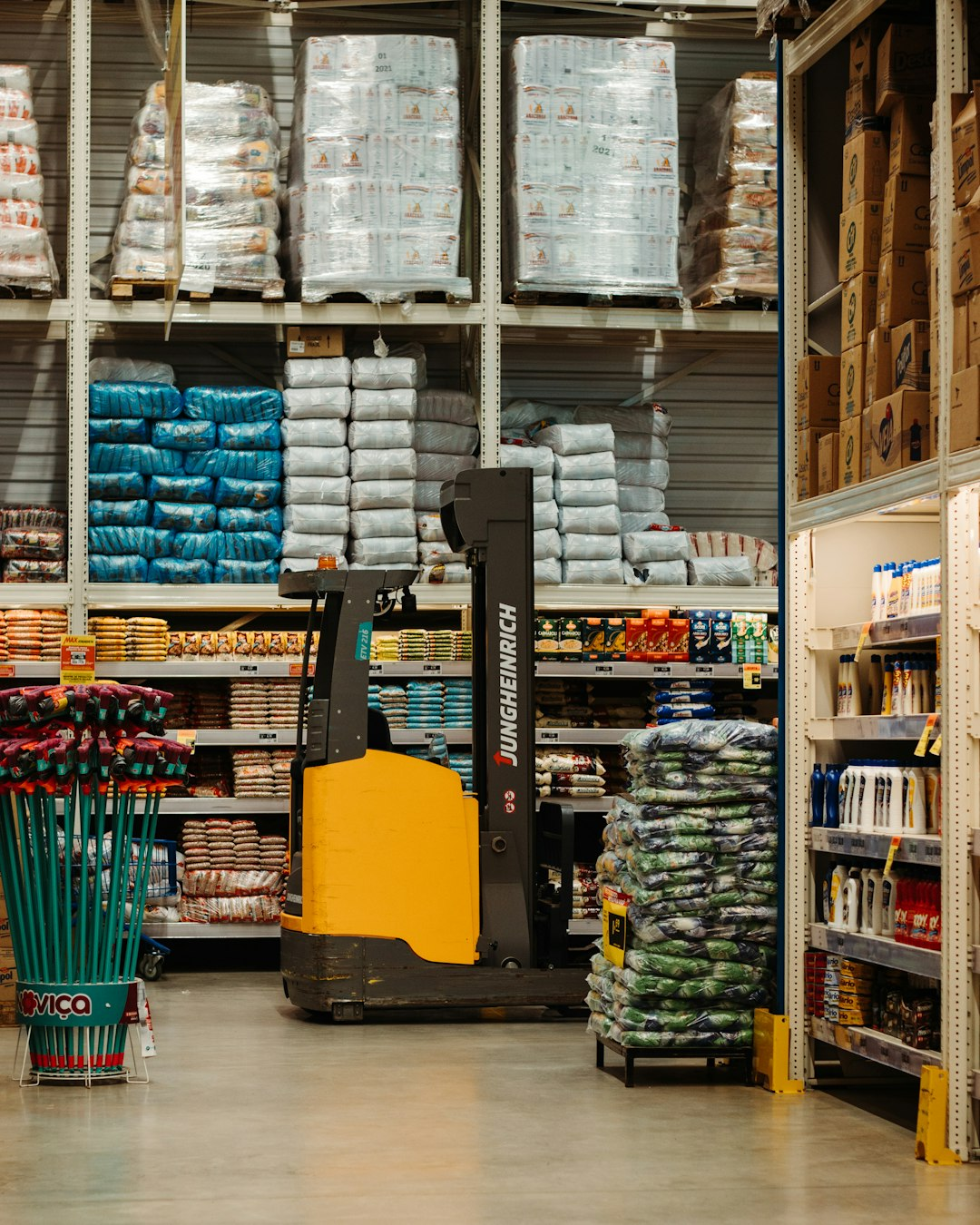Logistics is a critical component of supply chain management that focuses on the efficient transportation and storage of goods. It ensures products move from the manufacturer to the consumer effectively. Logistics involves planning, implementing, and controlling the flow and storage of goods, services, and information within the supply chain.
1.
Transportation: Moving goods from one location to another, selecting the appropriate mode of transport, and optimizing routes to reduce costs and delivery times.
2. Warehousing: Storing goods until they are needed for distribution, managing warehouse operations to ensure efficient storage and retrieval of products.
3. Inventory Management: Keeping track of stock levels to meet customer demand, monitoring inventory levels, forecasting future needs, and ensuring timely replenishment.
4. Order Fulfillment: Picking, packing, and shipping orders to customers, processing customer orders, packaging products, and arranging for delivery.
Example: Amazon's logistics system includes a vast network of warehouses and a sophisticated transportation system to ensure fast delivery of products to customers, handling large volumes of orders efficiently.
While logistics focuses on the movement and storage of goods, supply chain management encompasses a broader range of activities, including strategic planning, sourcing, production, and overall supply chain management.
Key Differences
Scope: Logistics is a component of SCM, covering transportation and storage, while SCM covers the entire process from procurement to delivery.
Focus: Logistics focuses on transportation and storage, while SCM focuses on end-to-end management of the supply chain.
Objective: Logistics aims to ensure timely delivery and efficient storage, while SCM aims to optimize the entire supply chain process.
Example: In a car manufacturing scenario, SCM involves planning and managing the entire process of producing and delivering a product, while logistics specifically handles transporting parts to the factory and cars to dealerships.
Both logistics and SCM are crucial for business success, helping reduce costs, improve efficiency, and ensure customer satisfaction. Efficient SCM and logistics provide a competitive advantage by enabling quick responses to market changes and customer needs.
Cost Reduction: Efficient logistics and SCM significantly reduce operational costs by optimizing transportation routes, reducing inventory levels, and improving production processes.
Improved Efficiency: Streamlined processes lead to faster production and delivery times, enabling companies to meet customer demands more effectively.
Customer Satisfaction: Timely delivery and high-quality products enhance customer satisfaction, leading to repeat business and customer loyalty.
Competitive Advantage: Companies with efficient supply chains can better compete in the market by offering lower prices, faster delivery, and higher quality products.
Example: Companies like Walmart and Amazon succeed due to their efficient supply chain and logistics management, allowing them to offer competitive prices and fast delivery times.
A career in logistics and SCM is rewarding and offers various opportunities for growth. Professionals in this field are in high demand due to the increasing complexity of global supply chains. With the right skills and knowledge, you can pursue a range of roles in different industries.
Supply Chain Manager: Oversees the entire supply chain process, optimizing efficiency and reducing costs.
Logistics Manager: Manages transportation and warehousing operations to ensure efficient movement and storage of goods.
Procurement Manager: Handles sourcing and purchasing of materials, negotiating contracts, and managing supplier relationships.
Inventory Manager: Manages stock levels and storage, ensuring inventory is maintained at optimal levels.
Operations Manager: Ensures efficient production processes, managing schedules, labor, and equipment.
Analytical Skills: Ability to analyze data and make informed decisions for demand forecasting, inventory management, and process optimization.
Problem-Solving: Quickly resolving issues that arise in the supply chain, handling disruptions, and ensuring smooth operations.
Communication: Effectively communicating with suppliers, manufacturers, and customers, coordinating activities, and managing relationships.
Project Management: Managing multiple tasks and projects simultaneously, overseeing complex supply chain operations.
Example: Graduates of UpskillUtopia's SCM programs can pursue careers in various industries, from manufacturing and retail to logistics and consulting. Our programs equip students with the skills and knowledge needed to succeed in these roles.
Foundations of Supply Chain Management: Learn the basics of SCM, including key concepts and principles, providing a solid foundation for understanding the entire supply chain process.
Advanced Logistics: Dive deeper into logistics management, including transportation, warehousing, and inventory control, focusing on optimizing logistics operations for maximum efficiency.
Procurement and Sourcing: Understand the procurement process and learn how to manage supplier relationships effectively, covering sourcing strategies, negotiation techniques, and contract management.
Technology in SCM: Explore the latest technologies and tools used in supply chain management, such as automation, data analytics, and blockchain technology, helping you stay ahead in a rapidly evolving field.
Expert Instructors: Learn from industry experts with years of experience in SCM, providing valuable insights and practical knowledge.
Hands-On Learning: Gain practical experience through real-world projects and case studies, including simulations and interactive exercises to enhance learning.
Flexible Learning: Choose from online, in-person, or hybrid learning options to fit your schedule, with courses designed to be accessible and convenient.
Career Support: Access career counseling, job placement assistance, and networking opportunities, helping you connect with potential employers and advance your career.
Ready to start your journey in supply chain management? Enroll in
UpskillUtopia's training programs today! Visit our website to learn more about the
best supply chain courses and how we can help you build a successful career in SCM.
By understanding the basics of logistics and supply chain management, you can make informed decisions and contribute to the success of any organization. SCM and logistics are essential components of modern business operations, and mastering these functions can open numerous career opportunities. At UpskillUtopia, we're here to help you every step of the way. Our comprehensive training programs are designed to equip you with the skills and knowledge needed to excel in supply chain management.


